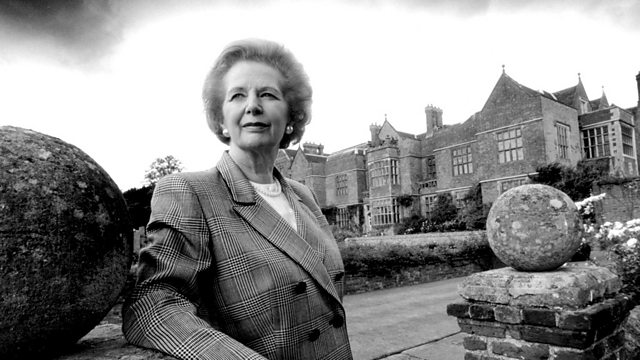Margaret Thatcher
Historical, political and cultural perspectives on the legacy of Baroness Thatcher.
Since her death on the 8th April, Baroness Thatcher has been lauded as the greatest peace-time Prime Minister of the 20th century, but also criticised as the most divisive politician of a generation. With such a wide range of views, how can we make sense of the 'Iron Lady'?
Thatcher's Premiership is often identified as a period in which Britain's economic base went through a profound transformation. But was this a direct result of Thatcher's policies, or was the country being swept along on a tide of historical development beyond the control of any individual politician?
Thatcher is often associated with a set of political beliefs that emphasise free markets, social mobility, individual responsibility and a conservative social agenda. But to what extent is 'Thatcherism' a coherent political ideology, and how does Thatcher fit in to wider Conservative thought?
Thatcher is often criticised by left wing feminists for her supposedly regressive attitude towards 'women's issues'. But she was Britain's first female Prime Minister, and arguably the most powerful woman in the world. What kind of a role model does Thatcher provide for women?
And finally - the cultural inheritance of the 1980s. To what extent is the world we live in shaped by the Thatcher years? Samira is joined by historians Dominic Sandbrook and Selina Todd, economist Mark Littlewood, writers Peter Hitchens and Will Self, Classicist Edith Hall, and politician and veteran of the Thatcher Government Edwina Currie.


